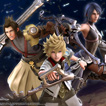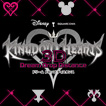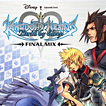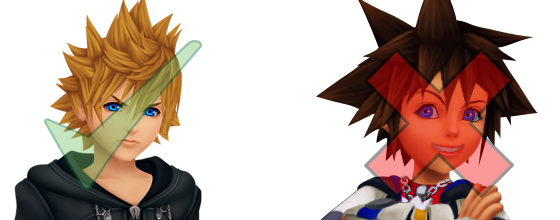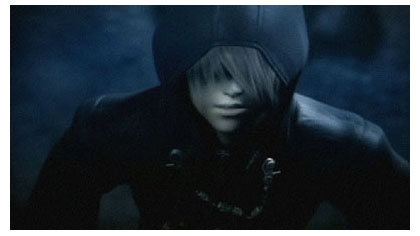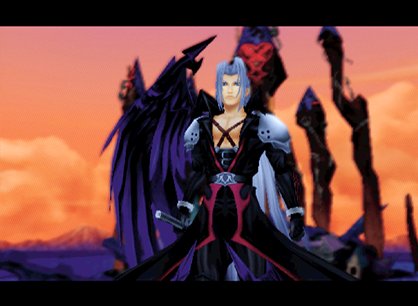The Application of Kingdom Hearts Terminology
Years ago, before the series has become what it is today, the primary source of Kingdom Hearts information came from two websites: The Ansem Report, and KHWorld – the latter of which, our very own Churro created! KHWorld focused news, information, and media – the only site at the time to have provided media on the original Final Mix. However, the primary source for theories, speculation, and “intelligence gathering” was on The Ansem Report. Debates in that day and age were primed on the meaning of secret videos: Deep Dive in particular. Deciphering the meaning of the XIII Points, the Gathering, who the men in the black hoods were. That was the nature of debates when the series was still young.
Today, on the other hand, the nature of the debates is focused not so much on the mystery that is to come, but of the answers that have yet to be explained. As ugly as the term might sound, call them “plot holes.” They come in all shapes and varieties, and they are the primary subjects for debates. To keep things civil, no true plot holes will be featured here – if you guys find one, you’re more than welcome to submit for a future Guest Blog. Today, on the other hand, the discussion will focus on something related to plot holes – the approach that is undertaken to explain them.
In the days of The Ansem Report, massive measures would be undertaken to acquire the proper evidence to support a theory. And in that case, a heated but civil debate would ensue. Correct predictions rarely came, but one thing it did provide was inspired productivity, and a sense of community. Call me a “grumpy old Vietnam veteran who misses the glorious crop-dusting days”, but today that is exactly what is lacking within the community. Proper research is rarely conducted. Analysis is hardly solid. And placeholders suddenly become official titles.
Does the Sephiroth caption strike you as odd? Something…just doesn’t click, right? No matter what it really is, the fact of the matter is, in today’s fandom, placeholders become official titles. Putting aside all political correctness and incorrectness, does the term even truly fit the series? Without proper research and analysis, one will quickly learn that when it comes to names and titles, there is most definitely a pattern.
The first tell-tale sign that something doesn’t fit? The English language, of course. Considered the high mark of today’s society (trolololol), one would think that greater care would be place when interpreting the structure of a sentence. Why not take a look at some examples?
- “If I had a heart…would that make me somebody?”
- “If I had a heart, you think I could love somebody?”
- “Rewrite Sora’s heart, and you can be somebody, not just the shadow of somebody.”
So, from those quotes, could you arrive at the conclusion that the figurative opposite of the Nobody…is a Somebody, from a literal interpretation? From a literal, yes. From an analytical one, heeell naw. The pattern of the series terminology when it comes to the naming of, let’s call them species, is that they’re almost always exclusively preceded by count nouns and/or plurals. Nobodies. A Nobody. Those Nobodies. That Nobody. Heartless. The Heartless. Those Heartless. That Heartless. Unversed. The Unversed. An Unversed. See the pattern? Secondly, shouldn’t the context of the sentence have some implications of the interpretation? In the above quotes, the context of “somebody” is the same as “I want to be somebody some day!”, right? Then what else do we have?
- “With a capital N. It’s a name, for those of us who are missing a vital piece of who we are: our hearts.”
Spoken by the Zexion himself! One would figure that a guy who carries around a lexicon everywhere with him would have a firm understanding of language! Heartless, Unversed, Nobodies, and Dream Eaters are all capitalized as names! Yet, has “somebody” even once been capitalized in-series? Outside of first-word-in-a-sentence basis? And what about in Japanese? Heartless, Unversed, Nobodies, and Dream Eaters are always pronounced in Japanese by their Latin Phonetics (“Anvasu”, for example). “Somebody”, on the other hand, is always spoken and written in native Japanese (“Dareka”, as another example).
With just a little bit of research and effort, a term that a good chunk of the fans has been using of late has just gotten debunked. And as unfortunate as it is, “Somebody” is just the beginning. The tip. For reasons specific to each individual, misappropriation of misinformation has become rather rampant – to the point where even confirmations from Nomura himself aren’t evidence enough. So, commenters! I ask you to sound off in the comment boxes below! Have you found yourself using “Somebody” as a term for “complete beings” in the series? Have you used it knowing it was correct or incorrect? Why? Do you still believe it is correct? Why so? Do you know of any other rampant pieces of misinformation floating around? Care to share? Mind providing evidence for and against? Do you plan to support it, or go against it? How would you go about either?
It’s fairly easy to see my own stance on this. And I have decided to go against it through awareness – even going as far as breaking the usual Guest Blog combo (Oy, news has been dry lately anyway…!) Just as how eager I was to share this Guest Blog, I’m also anticipating to how the community feels towards this!

